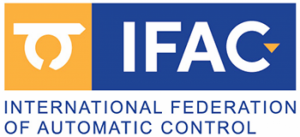The HiPEAC conference is the premier European forum for experts in computer architecture, programming models, compilers and operating systems for general-purpose, embedded and cyber-physical systems. Areas of focus and integration include safety-critical dependencies, cybersecurity, energy efficiency and machine learning.
The HiPEAC 2022 conference will take place in Budapest, Hungary. Associated workshops, tutorials, special sessions, several large poster session and an industrial exhibition will run in parallel with the conference.
A nagyteremben pedagógiai és pszichológiai előadások, a három szekcióteremben pedig előadások, workshopok, önismereti előadások, bölcsöde-óvoda-iskola-nemzetiségi és határon túli magyar oktatási intézmények témában. Az előtérben szakmai kiállítók és szolgáltatók standjai várják az érdeklődőket.
Dear Colleagues,
It is my pleasure to invite you, members, future members, and guests to Budapest, to the 42nd Annual Meeting of the European Thyroid Association. Together with the Thyroid Section of the Hungarian Society of Endocrinology and Metabolism, the Local Organizing Committee is delighted to host the ETA Annual Meeting in Hungary for the first time in its history.
The Budapest Congress Center is conveniently located in a residential area in the West half of the city, at a walking distance from several hotels and with tramline connection and ample other transportation access to the rest of the city. Pest, located on the other side of the Danube, is busier, with a vivid nightlife in the central districts.
Despite the turbulent history of Hungary’s past thousand years, major efforts have been made to conserve our heritage in Budapest and all over the country. Many buildings have been reconstructed and traditional districts, including the King’s Place (Buda Castle) and its surroundings on the Buda side of the Danube were conserved and renovated in their original arrangements. Major sites to visit include the Buda Castle District, including the National Gallery of Art, the St. Steven’s Basilica with magnificent view from the top, the House of Terror Museum dedicated to the victims of the two terror regimes of the 20th century, and the Parliament Building with the adjacent Memorial of the 1956 Kossuth Square Massacre. Beyond museums and a wide variety of arts and classical music events, Budapest represents a unique hotspot of thermal baths fed by natural hot springs. You might also be interested to taste Hungarian food specialties and wine in the ruin pub district.
Working in concert with the ETA Executive Committee we do our best to organize an unforgettable meeting. We expect an excellent scientific program; your recent research needs to be brought to and presented in Budapest.

Chair of the Local Organizing Committee
The IEEE PEMC Conference provides forum for presentation and discussion of new ideas in the field of Industrial Electronics and Motion Control. It integrates specialists both from academia and industry as expressed in the logo of the conference. The IEEE PEMC Conference series fulfill needs of researchers, mainly from PEMC countries*, and it also attract top contributions from all over the world. A special attention is devoted to evoking mutual collaboration of participants to prepare joint international research projects by organizing project oriented sessions and round table discussions during the conference. Significant support is devoted to young scientist.
In last decades, the IEEE PEMC Conference (previously named as the PEMC and EPE-PEMC Conference) has become the largest and most important conference on Industrial Electronics and Motion Control in Central and Eastern Europe. Since 2016 the conference has been sponsored by IEEE IES and IAS. As a tribute to the deceased PEMC Council chairman prof. Istvan Nagy, the “PEMC Council Award” is renamed to an “Istvan Nagy Award”.
The aim of this 18th IEEE-PEMC conference is to stimulate the findings of intelligent solutions (intelligent power electronics, intelligent control), in order to achieve the Intelligent Motion, Intelligent Mechatronics, Intelligent Sensors and Actuators, Intelligent Robots, Intelligent (more than smart) Micro Grids, Intelligent Power System, Intelligent Energy Generation, Processing, Distributing and Consuming, steadily walking to a better world.
Conference Topics
The topics include, but are not limited to:

Scope and Objective
There are several conferences on engineering approach of robotics. The primary topics for the SYROCO 2018 will be the control aspects of robotics applications. Robot control technology is widely used for space, surgery, rehabilitation, micro machine, entertainment, underwater, civil engineering, professional and domestic services, security etc. The control will continue to play an increasing role in the areas of robotics including robot-robot and human-robot cooperation in various dynamic scenarios. Contributions on basic research as well as on relevant applications are included.
In addition, the Moving devices (mobile robots, vehicles and UAVs) which can operate in non-industrial (nonstandard) environment need to have totally new functions and behaviours. It is not enough to execute a pre-programmed action line. They must be able to adapt to changing environments, make their own decisions and in addition, they might have to socially fit into the human environment. They have to follow regulations developed originally for human beings. It means that new problems of control are emerging and have to be solved. This Symposium provides an opportunity to present and discuss research and development work in the hot area of intelligent autonomous systems from the point of view of control.
Conference Topics
Topics of interests include, but are not limited to the followings
– Control of intelligent autonomous systems: mobile robots, vehicles and UAVs Semi-, highly- and full-automated driving,
– Control of Vehicle Groups and Fleets,
– Control of Moon and March rovers,
– Etho-Robotics (ethologically inspired robot motion and behaviour),
– Cognitive robot programming and supervising autonomous agents,
– Modelling of cognitive processes for robotics applications
– Control problems of Haptic interaction
– Control problems of Telemanipulation
– Control problems of Micro/Nano manipulation
– Control problems of Networked robots
– Robot control (adaptive, robust, learning)
– Force and compliance control
– Multi-fingered hand control
– Multi cooperative robot control
– Sensory based robot control
– Compact and efficient power for robots
– Industrial robot control applications for manufacturing
2018 Dentium World Forum in Budapest
“Digital Transformation and Bone regeneration”
Discussions on topics:
Speakers: